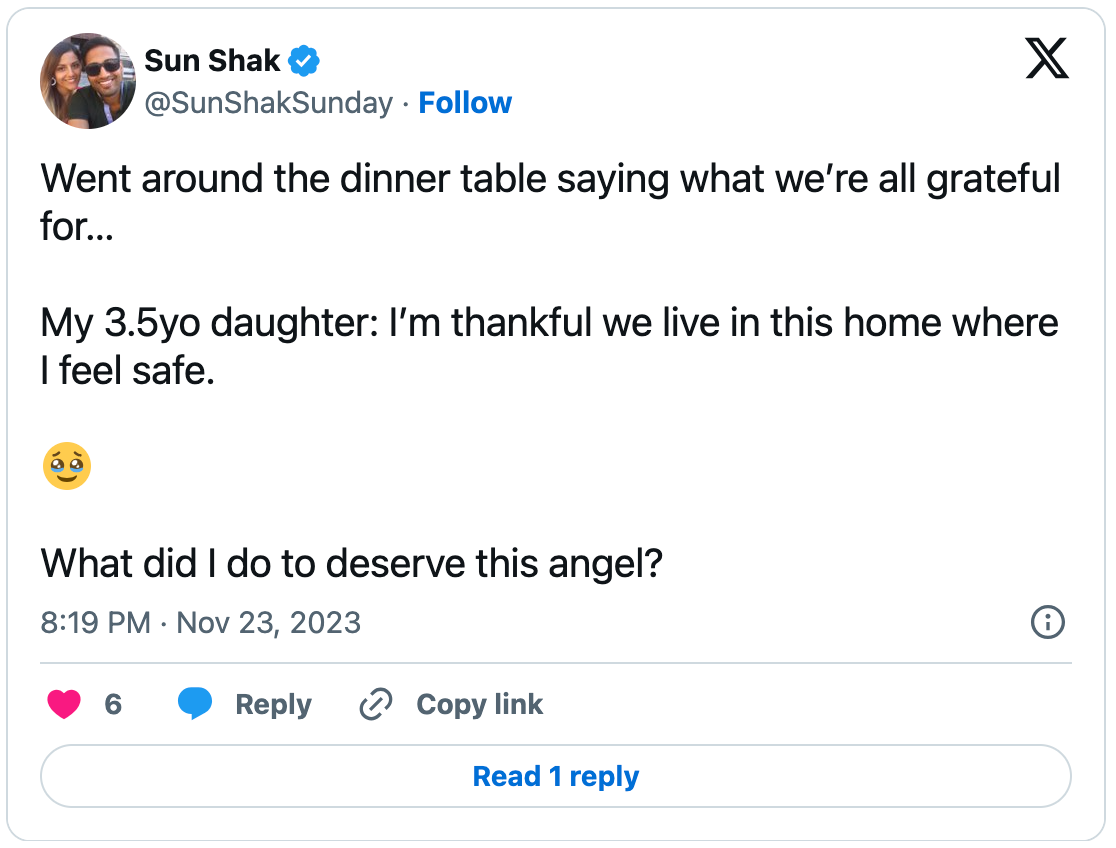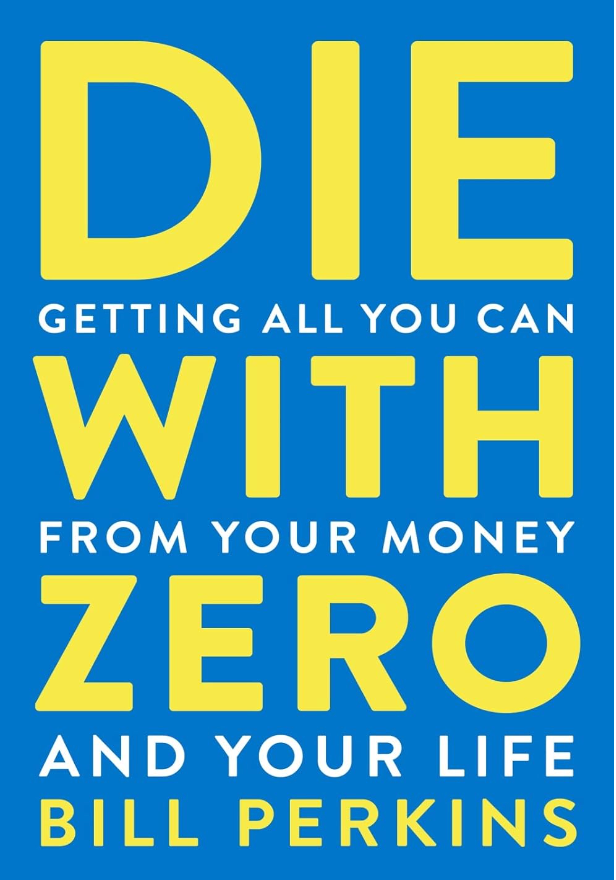
☀️
Livin' La Vida Luna y Luca

These two are the definition of Sour Patch Kids. Pretty sure this hug occurred right before one of them threw something at the other.
I recently finished a book called Die With Zero. The author, Bill Perkins, argues that you should aim to literally die with zero dollars left to your name.
As someone who is admittedly overly obsessed with leaving behind a large inheritance to my bloodline, I had to pick up this book just to hear the other side of the argument.
Although I'm not fully on board, there were a few ideas in this book that opened my eyes to a better way.

Health is Wealth
Nothing has a greater effect on your ability to enjoy experiences than your health.
Health is far more valuable than money because no amount of money can ever make up for poor health. But people with little money can still have many wonderful experiences if they're in good health.
A person's ability to extract enjoyment from their money declines with age. You can give a 85-year-old a private jet to go anywhere in the world for free and they'd likely rather be home so as to not miss their afternoon tea.
There are three basic things people need to have to get the most out of life: health, free time, and money. The problem is that these three things rarely all come together at once.
Young people tend to have abundant health and a decent amount of free time, but they don't usually have a lot of money. Retirees tend to have abundant time and hopefully a decent amount of money, but less health.
The time between these two extremes should be thought of as the New Golden Years because it includes a good combination of health and wealth.
These golden years are when you might consider spending more than you earn in a given year (assuming you have ample savings and investments that will continue to grow over time).
The message here is to stop waiting for a "better time". Because although "now" might be stressful from a financial standpoint, "later" might be stressful from a health standpoint.
Some obvious examples might be climbing Kilimanjaro or skiing in the Swiss Alps. Both of those make for an expensive trip today, but when you can comfortably afford it later in life, you might not have the physical ability to complete the task.
What About The Kids?
If you're someone who "always puts their kids first", don't wait until you're dead to show your generosity.
The truth is that your children would be better off getting your wealth sooner rather than later. Why make them wait until after you die?
According to the Federal Reserve, the age of "inheritance receipt" peaks around 60 years old.
By that age, the marginal benefit of each additional dollar is very low compared to when they are in the market for their first home or they have children of their own.
So instead of leaving boatloads of money to your kids just before they hit retirement themselves, hand them a brown paper bag full of cash each time they hit a major milestone that inevitably comes with a new set of financial burdens.
The Best Ways To Spend Money:
If you're wondering "how" to spend your money, here's an ascending list of how happy people are based on what they spend their money on.
- People who don't spend money on stuff
- self-explanatory
- People who do spend money on stuff
- The happiness might be fleeting, but consumers are generally happier than non-consumers.
- People who spend money on hobbies
- Collecting, Gaming, Crafts, Exercise
- People who spend money on experiences
- Vacations, Concerts, Sporting Events, Competitive Races, etc.
- People who give money away in a targeted way
- Charitable contributions with a short feedback loop. i.e: Buying a hamburger for a hungry homeless person outside a Mcdonald's or gifting a laptop to someone who is about to start College.
- People who spend money on freedom-inducing items
- Personal assistants, housekeepers, personal chefs, private jets.
Memories Are The Dividends of Experiences
"The business of life is the acquisition of memories".
But the key takeaway of the book is to strike the right balance between spending on the present (and only on what you value) and saving smartly for the future.
The main inspiration behind how we chose to celebrate the sale of our new construction project last week with the Michelin Star Omakase and the fancy new car was this book.
The version of me that didn't read Die With Zero would have happily delayed gratification a little longer on both of those things. Who drives a Porsche when you're 30-something? Who goes into the city on a Thursday for lunch of all meals?
People who are trying to take advantage of their golden years by acquiring memories that'll pay us dividends far more valuable than an incremental dollar or two later in life.